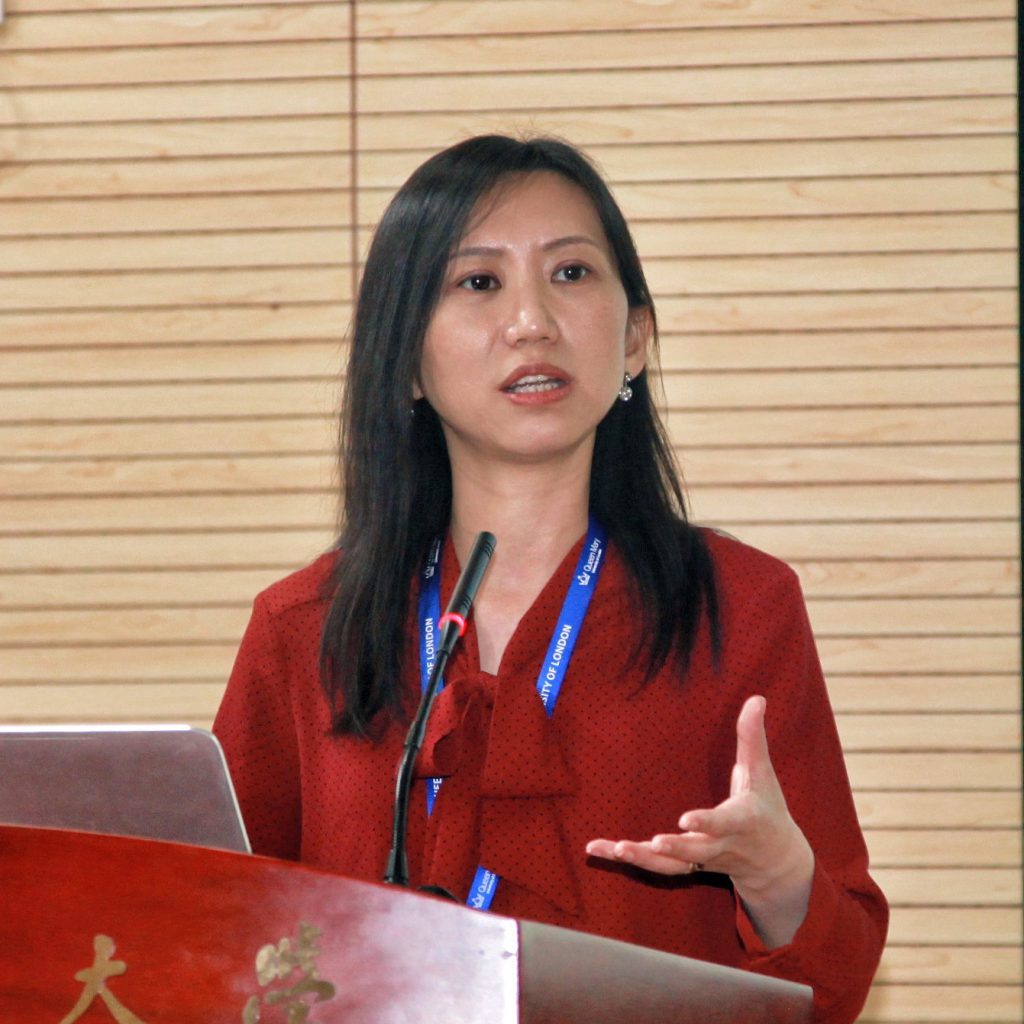Professor Yue Chen has moved into a new role as Director of Scholarship. This interview explores what the role means and why she feels passionate about it.

What is the Director of Scholarship role?
The main duty of the role is to look after scholarly activities and to support staff on teaching and scholarship contracts. Given advances in technologies universities are not a monopoly provider for high level education so it is important to look into our delivery to ensure our teaching is at a high level and is still relevant. School is still growing, we have around 5000 students including the Joint Programme in Beijing and around 150 academic staff. This creates big challenges that can be helped by investing in scholarship.
How would you define scholarship in this sense?
Exploration and reflection on teaching practice, teaching initiatives related to in-house teaching and supporting learners. I use the metaphor of a colour palette with three parts:
1) Scholarship for teaching and learning (improving teaching practice)
2) Educational research: using data analysis or other research methodology to explore pedagogy or particular areas such as student motivation.
3) Wellbeing, ethical issues and social justice.
What made the role attractive to you?
It seemed like natural progress after being Director of Education. That role was about ensuring the smooth operation of our day-to-day academic business. A school our size has lots of operational needs. In the role I was exposed to new ideas for assessment and education and I wanted more time to explore them. For example how does assessment change learners behaviour?
On that topic are students over-focused on optimising assessment results?
There is a very competitive job market and this makes students become more “strategic” on how they learn. Students are still starting at the same age but there are a lot of new things on the curriculum that they need to learn. Can we bring students back from a strategic way of learning? Can we give them a larger picture of education beyond what appears on a transcript? I want them to develop skills for critical thinking, the ability for life-long learning and to learn to solve complex problems. I also want to keep the human touch in teaching.
Could you explain that last phrase a little more?
New technologies support education and make it more convenient and flexible but this can have drawbacks. I want to make teaching personal. Thinking about my early education I remember seeing particular teachers as a role model, inspiring students. A student who was taught by an AI could never see it as a role model. I want to support students with understanding and empathy.
Often we are teaching at a large scale. How do we keep that empathy?
It is very hard to make teaching personal when we teach large classes but even then we could let students learn in more personal ways. Can we help students recognise the gaps in their learning? We can listen to their feedback and help them achieve learning outcomes without undue stress. For example students might have a “fear of missing out” where there are so many resources available. This can make students anxious and overworked which can have a negative impact.
What teaching methods do you see as most useful outside the traditional “broadcast” lecture?
1) We should understand students’ learning needs and level — a challenge of QMUL’s inclusive model means that we get students from a number of backgrounds. One option might be to diversify the way we assess students. Some students are disadvantaged by certain assessment styles and giving them a choice might help with this.
2) We should find the right pedagogy that fits the module we teach. Lots of people talk about the flipped classroom but, for example, this might be more useful in situations where students are more experienced as learners and more willing to engage in discussion.
3) It is important to be an effective learner ourselves. We need to expose ourselves to advanced technologies and understand their impact on teaching.